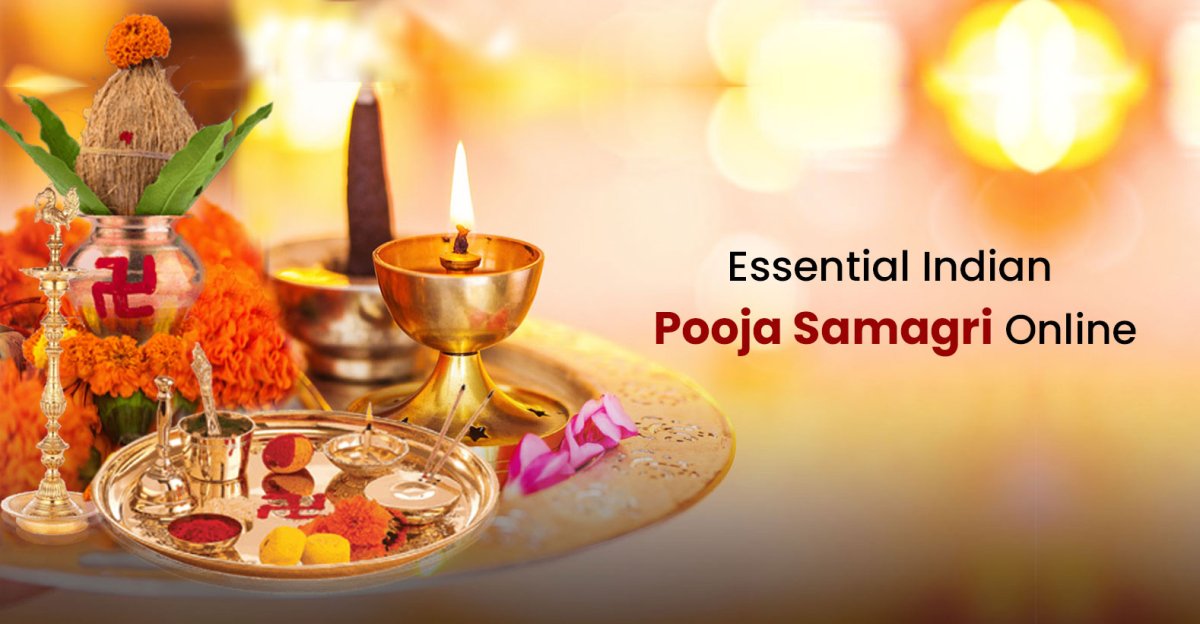What Are The Ways To Ensure Your Pooja Items To Maintain Shinning?
When it comes to festival arrangements, the first responsibility is too deep clean your pooja items ready for the festival occasion. Keeping this sacred space clean is not a simple task. In an Indian house, the pooja room is considered the purest place. Every morning, the head of the house cleans and decorates the pooja room before every person joins for prayers. The same formal procedure is performed in the evening also. The lamps, Pooja utensils and bells are used during the devotions are brass in many places. The lamps and utensils get sticky and grimy with oil as they are used daily. They cleaned all the oil and dirt from the pooja utensils and made them shine took various efforts. Let's see a few easy tips and steps to clean your brassware.
What is Puja?
Puja is a formal procedure or ritual during which you make offerings to divinity to obtain blessings or good destiny as prasad. During a Puja, you may repeat sacred stotras or mantras that help you connect to God and make your mind peaceful. The entire act of Puja is a representative means of showing devotion to divinity and sacrificing oneself at the altar as a spot of true worship.
Who Performs Puja?
You do not need any qualifications to do puja. The one thing you need is your faith is enough. Any person who has faith and believes in a deity or scripture can perform Puja at their home. But there are some individuals called Pujaris or priests, who have studied the scriptures and gained more knowledge, by that they guide us to perform certain rituals. They help us value the significance of these rituals, pooja items, pooja mandir. Why is puja important? Faith is the only thing to do, pooja. You may be aware of certain rules for each ritual, like which Puja to perform during an instance or which puja should be conducted at a certain time. Also, they know what holy objects are required to perform a Puja. For this, you can take suggestions from pujaris.
These Pujaris dedicate their entire lives to the service of God. They pass on their knowledge to valuable students, who, too, want to follow their path.

Why Perform Puja?
The best reason is in the word (Puja) itself – "Pu" refers 'to purify' or 'to cleanse,' and "ja" refers to 'birth.' While you are performing Puja, you cleanse your body, mind, and intellect and take a new birth each time. If you need to reset your inner self and start anew, a Puja helps you get there.
Once you start performing a Puja, your body, mind, and intellect are all aligned and focused on one thing your God. While performing the actions with your hands, you are chanting or reciting names with complete faith and reverence. It is an enormous way to discipline yourself and make your mind single-pointed.
Suppose one is besieged with negative thoughts, loaded with pressure or problems, or cannot recognize which way to turn. In this time, a Puja will also help clear up the mind and see a previously hidden path. Your negativity can have an unfavorable effect on your house and your loved ones. So not only does a puja benefit you but also your environment.
You do not need any specific pooja materials to pray, just your availability. If you are thinking of buying a pooja, things like options for Pooja Thali, Diyas or Puja items can offer you a beautiful set with hand-beaten copper and brass items. But to carry out puja, you may need a few essentials. That may be simple or as elaborate as you may like.
Essential Pooja Items:
Sindoor Tika:
Sindoor is an orange-red powder mostly by married women. Still, it is also one of the most significant for any pooja ceremony as it is used as a tika and placed on the forehead of everyone present for the pooja and based on their region it may differ.
This symbolizes the avoidance of loss of energy and rises the shivering of your body. People may choose to place it every day or only on particular religious occasions when a pooja is conducted.

Sandalwood Stick:
Sandalwood is considered to be sacred and is called Chandana. Sandalwood tika is placed on the foreheads of men and women of the religion to symbolize devotion to God and is a sign of holiness.

Incense Sticks:
The burning of the fragrance stick or agarbatti holds vast representational significance. It mainly represents the human sacrifice for the tremendous good of society as the incense sticks burn entirely to ashes yet fills the room with a pleasant aroma.
Indian Pooja Items were used widely in many religious practices to deepen attention, heighten senses and uplift one's spirit during the pooja ceremonies.

Harti Kapoor:
Kapoor or camphor is used in pooja ceremonies to appease the Gods and Goddesses. Most rituals begin with the flaming of these Indian pooja items since it is known to remove all evil, and also it kills all bacteria present in the atmosphere as it burns. The lighting of this pooja item is simple, but it is a significant part of the pooja as it spreads positivity upon everyone present.
Pooja Thali:
Most usually, pooja items are made of brass or steel in which all the pooja objects are placed and decorated. The pooja thali is mainly used to carry all pooja items without difficulty from one place to another.
In most ceremonies, the pooja items in the sacred pooja thali play a promising role. The pooja thali may be decorated or fixed depending upon the beliefs and devotions of the people.

God Idols:
These pooja items are the most vital as they are the Gods to which the prayers are offered. The idols or murti can be of various Gods and Goddesses like Ganesha, Lakshmi, etc.

Tips To Shine Pooja Utensils:
Clean Your Pooja Counter:
The pooja room counter is typically constructed of stone, such as marble or granite, however, it may also be wood. Clean up oil spills, agarbatti ash, and dried flowers regularly. You should remember that if you do not clean your oil often, dust will quickly gather on it, and you do not want your Pooja room to look unclean. Brush the area with a dehydrated towel to remove any remaining spots. You can clean using a detergent spray and warm water at the end of each day.
Lemon and Baking Soda Polish:
In order to make a lemon and baking soda polish, slash a lemon in half, compress it in a single teaspoon of baking soda and mix until it becomes a paste. Then you may rub the paste on the brassware with a smooth cloth. Suppose the tarnish is hefty on the utensils or any other brassware item. Let it stay for almost 30 minutes, and then rinse it off with warm water and dry.
Use Tamarind:
Did you hear that tamarind pulp can also be used? If yes, add a handful of tamarind pieces to a 12-cup bowl of water and allow it to soak for 30 minutes. Scrub the utensil surfaces with this solution and a scrubbing pad and wait 5 minutes before rinsing with plain water.
Flour, Salt, and White Vinegar:
Mix an equivalent amount of all three ingredients (Flour, Salt, and White Vinegar) to create a paste. Then apply a light coating of the paste on the brassware. And let it stay for 20-40 minutes before flushing off with warm water.
Ketchup, Tomato Sauce, or Tomato Paste:
Tomatoes have an acid that draws tarnish on brass and other metals. Then flush it off with warm water and dry it for some time. And then, apply a layer and leave it on for an hour. Tomato Ketchup, tomato sauce, and tomato paste sauce all function evenly.
Special care for Silver and Copper items:
Many Indian Pooja items are made of silver, including lamps, sacred ash receptacles, bells, etc. There are a few simple steps, and you can make it appear brand new:
- Sacred ash, also known as vibhuti, can polish silver. Utilize the ash to create a paste and apply it to the silver surface.
- Scrub with your hands and avoid using a scrubber because silver is soft and easily scratched.
- Tomato ketchup and toothpaste are also good cleaners for tarnished silver.
When copper items come into contact with water or simply air, they create black stains fast. To handle with this:
- Make a smooth vinegar and salt paste.
- Make circular movements and use a great amount of paste. You can wash the small places with a toothbrush and then rinse the items in warm water.
- By utilizing a clean cloth, wipe away the residue.













